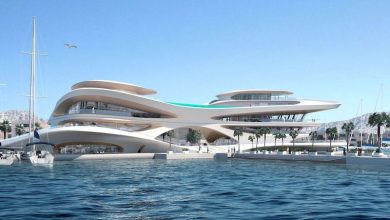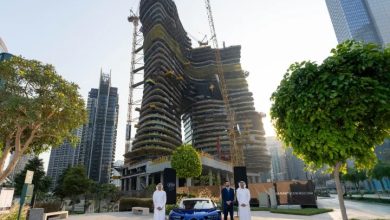Stadiums in Saudi Arabia Need to Change from Sports and Entertainment Centres to “Ecosystems” in the Centre of the Community

Riyadh – Asdaf News:
Modern-day stadiums and arenas cannot only be venues where sports events are played and live entertainment happens; they must be ecosystems at the heart of communities and instilling a sense of belonging, according to industry experts speaking on the final day of the inaugural World Stadiums and Arenas Summit in Riyadh.
With the Kingdom undertaking a major push to modernize existing stadiums and build a new generation of world-class venues, especially with landmark events like the AFC Asian Cup 2027 and FIFA World Cup 2034 on the horizon, the future stadium model is a timely and central focus at this week’s summit, which has gathered more than 1,500+ global sports infrastructure professionals to discuss innovation, sustainability, venue design and management, fan experience, and more.
‘Not Just a Stage for Sports’
Guido Fienga, Senior Advisor to Al Nassr Football Club, told attendees Saudi Arabia has a great opportunity, through its commitment and investment in sport, to consolidate communities and create new ecosystems through redevelopment of existing stadiums and construction of new ones.
“Stadiums must work as the core of new ecosystems,” Fienga said, while reiterating that stadiums can make communities stronger and unite people. “They aren’t just the stage of a match for 90 minutes. They are where communities can show a strong sense of belonging; it is not just the stage for the team to perform.”
Fabian Schuster, Managing Director and Global Stadiums and Arenas Leader at EY, echoed Fienga’s views and said new stadium sites should include training facilities, to “attract and engage the youth,” and vital community components such as medical centres. Schuster, who cited the example of the redevelopment of the MHP Arena in Stuttgart, said education and accessibility are an important part of today’s stadium ecosystem, such as training programmes and initiatives for children during school holidays.
Fienga concluded sporting clubs, and their stadiums, now have “three engines”: the first engine, he said, is performance of the team; the second is the revenue and sponsorship capability. But, he said, the third and most important engine is the social and community element – bringing people together to feel part of a community, adding “there is nothing like football to connect people to a city.”
Saudi Binladin Group Awarded Contract to Redevelop King Fahd Sports City
Saudi Binladin Group used the summit stage to announce it has been awarded the main contract from the Ministry of Sport to redevelop King Fahd Sports City (KFSC) in Riyadh. The stadium was first constructed in 1987 and holds “deep cultural and historical significance,” said the group.
Eng. Mai Mously, Senior Director of Business Development, Saudi Binladin Group, said the awarding of the contract “shows the confidence in the group to deliver excellence and quality in mega projects”. She told attendees the project will see the stadium capacity increase from 58,750 to 72,000 seats in time to host AFC Asian Cup matches in two years’ time. The stadium will “become a future sporting hub” and KFSC will be on the FIFA World Cup 2034 stadium roster.
Truly Smart Stadiums Elevate Fan Experience, Safety, and Operational Excellence
Sayed Farouk, Director of IT at the Saudi Pro League, took attendees through the latest developments in smart, modern stadiums. Farouk said tech-enabled venues can enhance fan experience, safety, and operations. In his presentation on the World Stadiums and Arenas Summit stage, Farouk said features of a truly smart stadium include AI-driven crowd management, smart parking, AI player tracking, smart F&B, and concession management. Other features include facial recognition for speed of entry and automated emergency response systems, digital signage, 5G mobile network connectivity, and full-spectrum data analytics.
Leila Masinaei, Managing Partner at Great Minds Event Management added said, ” based on the roaring success and positive feedback from all partners and participants, we are excited to announce that planning for the second edition is already underway. The upcoming event will feature multiple conference streams that will broaden the discussion beyond sports infrastructure to include essential topics pertaining to athletes and fans alike. Scheduled for March 31 to April 1, 2026, at the Riyadh International Convention & Exhibition Center, this event aims to accommodate the unprecedented demand we experienced during the 2025 edition. We are thrilled to have introduced this dynamic event in Saudi Arabia and are dedicated to its continued growth, with the aspiration of making it the largest sporting conference and exhibition in the world.”
The World Stadiums and Arenas Summit, backed by strategic partners such as Qiddiya, New Murabba, Saudi Business Council, and EY, and held in association with the Saudi Green Building Forum, took place from April 29-30 at Riyadh’s Mandarin Oriental Al Faisaliah.




